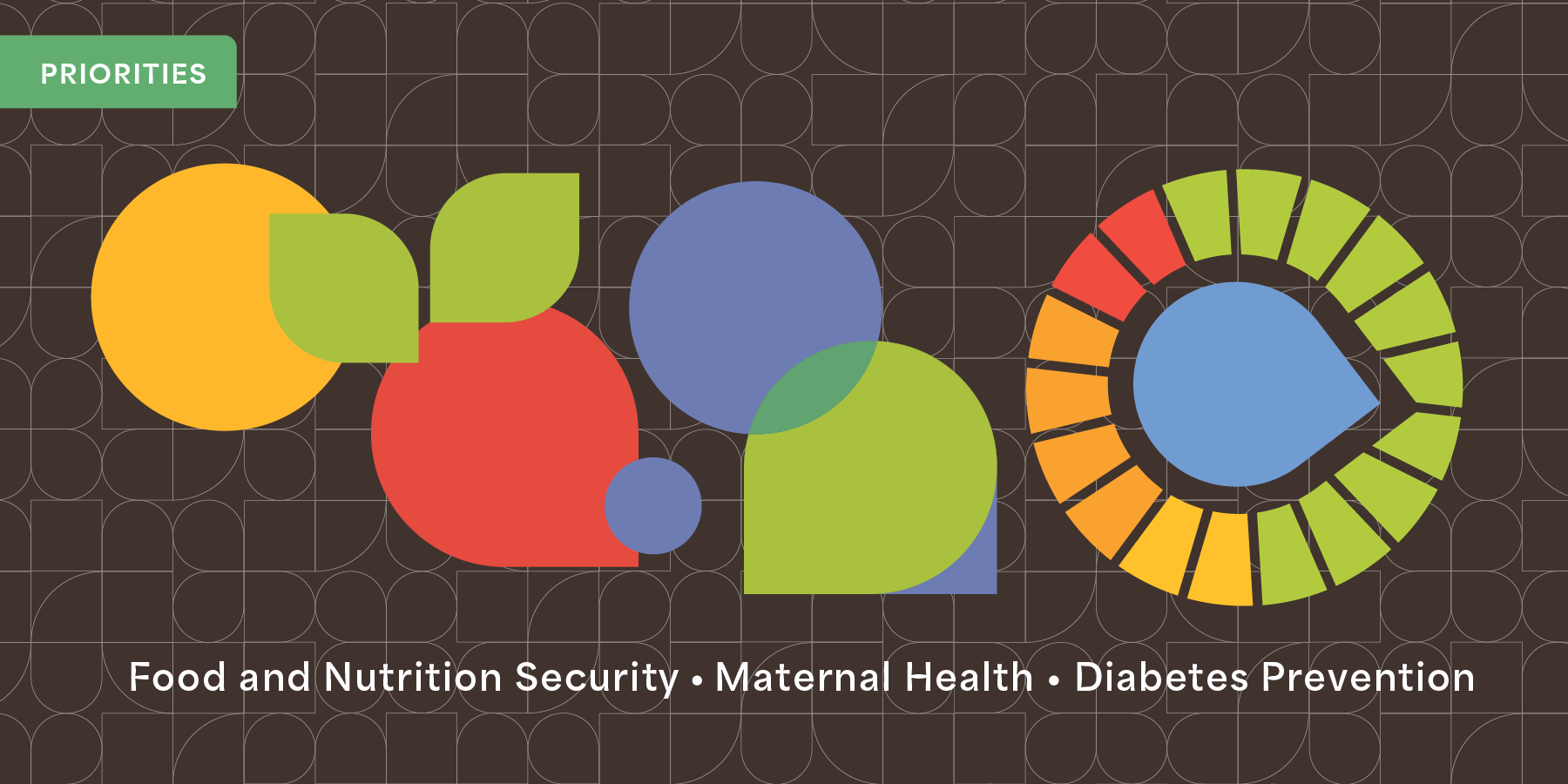
Dr. Ann Barnes
President and CEO, Episcopal Health Foundation
Episcopal Health Foundation (EHF) has released a new strategic framework that’s doubling down on the foundation’s groundbreaking work over the past eight years by challenging Texans to go beyond the doctor’s office to address underlying non-medical factors that impact health.
We’ll continue to take action to make health and health care services accessible, support key elements of healthy communities, and leverage health policies to improve health. Through these established action areas, we’re also excited to announce that the foundation’s next chapter will focus on critical game-changing priorities: food/nutrition security, maternal health, and diabetes prevention.
People with lower incomes and other underserved communities are more likely to be affected by these chronic health issues, and they can’t be improved by medical care alone. Moving the needle in these three areas will lead to a ripple effect of good health in Texas.
Imagine a Texas where neighboring zip codes don’t have a 20-year difference in life expectancy.
Why is EHF focusing on three new priorities for change?

Certain health conditions and events serve as warning signs that systems and circumstances need to be improved in Texas. These negative, but preventable, health-related conditions are deeply affected by underlying non-medical drivers of health – factors and conditions outside the health care system that significantly influence a person’s overall health and well-being.
EHF is betting that by confronting and addressing three Priorities for Change – nutrition/food security, maternal health, and diabetes prevention – we can make the biggest impact in reducing preventable differences in health outcomes based on income, race/ethnicity, or where a person lives.
Good nutrition is essential for good health.
Lack of access to healthy food is associated with eating more fast foods and drinking sodas that directly contributes to obesity and health conditions like diabetes, heart disease, and stroke.
- 4 million Texans experience food insecurity.
- One in five Latino children and one in four Black children in Texas experience hunger.
- One-third of households who live below the poverty line lack reliable access to adequate nutrition.
Mothers should not die from pregnancy.
Healthy communities and health services that are equitable, accessible, and just are foundational to healthy pregnancies and maternal health and wellness.
- Key studies show that up to 90 percent of maternal deaths are preventable. Black Texans die from pregnancy-related causes at twice the rate of White Texans and four times the rate of Latino Texans.
- Non-medical factors like limited access to nutritious foods, few safe places to exercise, and not having affordable health insurance impact rates of chronic medical conditions that negatively affect pregnancy outcomes.
Nine in 10 cases of diabetes are preventable.
Diabetes increases the risk for heart disease, stroke, and kidney disease and is largely influenced by non-medical factors like access to affordable nutritious food and opportunities for physical activity.
- The rate of diabetes in Texas is higher than the national average.
- Latino and Black Texans have a higher rate of diabetes than White Texans.
EHF remains laser-focused on changing the conversation across the state to promoting equity by improving #HealthNotJustHealthCare
Opportunities to be healthy are not equal in Texas. Life expectancy in zip codes separated only by a freeway or a few miles can vary by more than 20 years. Many low-income and marginalized communities in urban and rural settings have poorer health due to poverty and discrimination resulting in limited access to quality jobs, schools, housing, food, and more.
Focusing on non-medical drivers of health like creating and maintaining safe places to exercise, increasing access to healthy foods, and removing barriers to health care access are critical actions that EHF can help change-makers tackle the root causes of poor health across the state.
While everyday lives and health are deeply intertwined, access to medical is indispensable —and in Texas we need to work to make health and health care services much more accessible and affordable
One in five Texans does not have health insurance. EHF’s latest statewide poll showed nearly 7 out of 10 Texans skipped medical care because of cost, and study after study shows that skipping or delaying care most often leads to worsening health. Supporting equitable access to comprehensive health services is essential for a person’s health.
EHF will work to strengthen health-minded policy decisions at every level
This includes policies that increase affordable access to health services, innovative initiatives that address non-medical drivers of health, and decisions that lead to improved community conditions. EHF is specifically focused on improving opportunities for health for people with lower incomes and other emerging populations that are often overlooked and excluded.
What's next?
EHF announces one-time changes to grantmaking in 2024
Our next chapter begins in 2024 with a season of learning for the organization. Staff will listen to and learn from those with experience and knowledge in food and nutrition security, maternal health, and diabetes prevention: individuals and communities with lived experience, clinical and public health experts, and local and national organizations committed to improving health in these areas. EHF will invite old and new partners to join the journey. The goal is for EHF to thoughtfully identify the most impactful strategies to address these complex health needs and the best metrics for measuring the impact of EHF’s efforts.
EHF leaders anticipate releasing 2025 Grant Guidance in the Fall of 2024. This document will reference the new strategic plan and include details about funding priorities, grant cycles, and the application process.
A future in which everyone enjoys nutritious food, safe pregnancies, and a life without chronic disease is the goal EHF is committed to pursue. No group can do this work alone, but working with partners across Texas, EHF can be bold in Igniting Change that leads to individuals and families experiencing improved health in ALL Texas communities.

